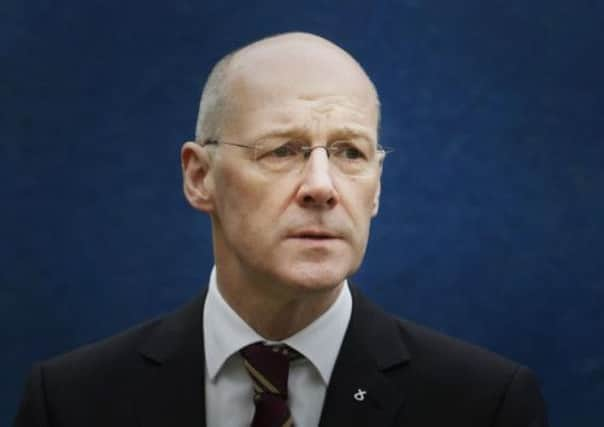Leaders: Merit in reform of consumer protection


Inevitably, it seems, such initiatives seem to require the setting up of another quango to light the bonfire, which more often than not fails to produce the promised conflagration.
On the face of it, however, the proposal published by John Swinney on the shape of consumer protection in an independent Scotland seems to make a great deal of sense. It would involve bringing a number of disparate consumer protection functions under a single umbrella, at a stroke getting rid of a number of official and quasi-official organisations.
Advertisement
Hide AdAdvertisement
Hide AdMr Swinney’s intentions here are sound. Especially at a time of austerity, when the spending of every penny of public money must be justified as being unambiguously in the public interest, reducing the amount of pointless officialdom is a vital part of the job of every minister.
Of course, such standardisation would have to be achieved without sacrificing one iota of the legislative protection afforded to Scottish consumers now, as is their right and their expectation. In a world where there is no shortage of sharp practice and potential for consumers being misled, endangered or short-changed, this is essential.
So, if the government’s new plan could achieve savings, increase efficiency and improve consumer protection, it would have merit. Critics who carp about the undesirability and impracticality of different regulatory regimes north and south of the Border are failing to recognise the day-to-day reality faced by a corporate world well used to dealing with a range of different trading circumstances across the national boundaries.
Mr Swinney’s plan gives an option to treat the financial sector separately. This is perhaps understandable – financial regulation is an extremely hot potato in the independence debate, and any changes to government oversight in this area will no doubt form part of future (and far more contentious) discussions. Nor does it cover food standards – another highly controversial area in the light of the horsemeat scandal at the start of this year, where the response was led by UK ministers, not Scottish ministers. We await these debates with interest.
Meanwhile, the UK government’s response to the latest SNP paper is to point out that moves to rationalise consumer protection functions under one umbrella organisation are already under way, in the development of Trading Standards Scotland, and do not require independence.
Constitutional tussles aside, this is all to the good. Regardless of whether reform comes about within the UK, or as a result of the UK’s end, a slimmed down and more coherent system of consumer protection is very much desirable and would serve Scotland well.
Let’s hope Tartan Army win at least
THEY think the wait is all over. Well it is now. This evening, on the hallowed turf of the new Wembley Stadium, Scotland will play England in the first football international
between the two nations for almost 14 years.
For fans who are getting long in the tooth, it is sobering to think that many Scotland fans in their teens and early 20s will scarcely be able to remember an England v Scotland fixture, if at all. There once was a time when this match was the highlight of every Scottish fan’s football calendar – apart, that is, from Scotland’s regular forays into the World Cup and European Championships. How times change.
Advertisement
Hide AdAdvertisement
Hide AdThe match, which is part of the English FA’s 150th anniversary celebrations, is being keenly anticipated – although perhaps more on the Scottish side of the Border than the English. Confrontations with “the auld enemy” are capable of stirring strong passions among Scottish football supporters.
Let us hope, therefore, that tonight’s match shows the Tartan Army in the positive light that has been their cherished reputation for many years now,
winning the kilted and Jimmy-hatted travelling support plaudits around the world.
It will be a competitive match, for sure, but let us hope it is a happy and fun occasion that will be remembered for all the right reasons.
In the last match, in November 1999, Scotland came away with a 1-0 victory. But more important than the score, there are high hopes for exemplary behaviour from the Scotland support, both at the ground and in the country at large. This match is officially a friendly, that would be a good kind of event to have.